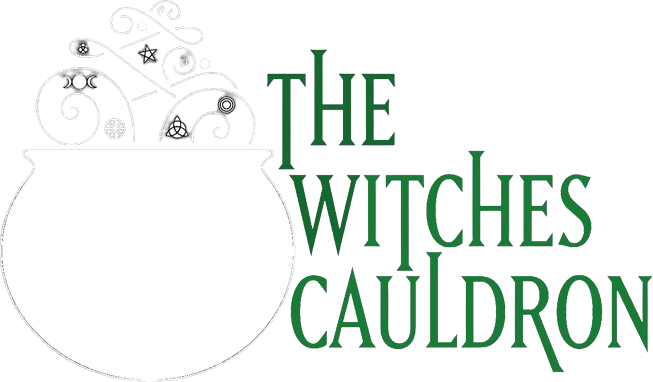Objects of Power
Many magical practitioners will tell you that you don’t need any magical tools whatsoever. After all, did our ancestors have fancy athames, pentagram strewn altar cloths and more crystals than you can shake a stick at? Probably not. But our forbears did place rather a lot of emphasis on powerful objects – magical swords, mythic cauldrons, magic rings, and holy receptacles such as the grail. Many varied ritual objects have been unearthed in the temples of old: masks, axes, figurines, and votive offerings such as swords and spearheads are but a few.
Myths tell of objects which are themselves imbued with magic, not merely tools used to channel its power in the desired way. This is a bit different from most modern ideas about witchcraft, but such magic may not be beyond even beginners. Serge Kahili King, PH.D., has this to say in his book Urban Shaman: a Handbook for Personal and Planetary Transformation Based on the Hawaiian Way of the Adventurer:
‘Everyone has the same power… And everything has the same power. The wind, trees, flowers, stars, mountains, seas, rain, clouds, and all the rest of the elements and objects of the natural Universe have the same power to create their own experience.’ (Published by Simon & Schuster, New York © 1990).
King believes that seemingly inanimate objects such as computers and cars and rivers have a life force and even a consciousness of sorts, and that they are linked with us, just as humans are linked across the globe. Cauldrons, wands, swords, pentacles, and all the magical paraphernalia in our repertoire can definitely take on powers (and sometimes, a distinct personality) of their own, even if you believe that power to be nothing more than associations placed on them by yourself. King also disregards the idea of cleansing ritual tools, for if everything is connected at all times, how can anything be clean or dirty? However, many practitioners favour regular cleansing as a way of setting their magical tools aside from everyday utensils. Again, if this distinction is only going on within our own heads, does it matter? It still contributes to the overall power of the item.
The symbolic power of magical tools is undeniable – swords, chalices, wands, bells and so on prompt the unconscious (which understands only pictures, not words) to work in the desired way, adding focus to a spell that might be left entirely to the logical brain if it were based on words alone.
So, if tools unite focus and intent (or thoughts and feelings) they must be pretty important, at least until we develop our own magical mojo beyond the need for them.
But then, there seems to be so much stuff to get. Is all of it necessary? And how can it possibly be affordable?
Of course, you don’t need to get everything your favourite books or website suggests, just go with what feels right. Here’s my guide to making it affordable.
How Can I Buy All the Witchcraft Supplies I Need?
Some of you may be thinking: ‘All the ritual gear I need for under £100? Yeah right.’ Others may think £100 is a bit steep. Either way, I reckon the frugal witch can kit him or herself out with tools and basic ingredients for that amount or less.
There’s a simple way to acquire your magical supplies without overspending: honour the elements. Purchase, make, or find a magical tool or ingredient that represents each of the four quarters, and do the same with your ingredients – oils, incense, crystals and so on.
Elemental Guide to Magical Tools
Some pagan writers will tell you that making your own tools is the best way to make effective use of them in witchcraft – after all, through the process of making them, you are imbuing them with your own energies and, indeed, just more energy in general. Is there a comparison between a factory made object and a lovingly crafted, handmade piece, with hours of love poured into it? Perhaps not, but ultimately, it’s up to you what adorns your altar or comes with you to a windswept hilltop on the full moon. Sometimes, the most beautiful magical tools are to be procured from someone who really knows their craft, and there’s no shame in not having time to make everything. The final part of your magical repertoire should include as many natural, free things as you can find – shells, feathers, stones, fresh flowers (as long as they’re not rare, protected species), dried leaves and plants work wonderfully.
Remember, there are magical tools you can buy, magical tools you can make, and magical tools you can find for free. Here’s my guide to a brilliant basic list from which to build your magical supply store:
Honouring Earth
Magical Tool: Herb Knife
Crystal: Tourmaline
Incense: Sage
Oil: Lavender
Natural Item: A stone, rock salt, leaves, herbs, flowers, corn, seeds and fruit.
Honouring Air
Magical Tool: Censer or Incense Holder
Crystal: Clear Quartz
Incense: Acacia (Gum Arabic)
Oil: Almond
Natural Item: A feather, airborne seeds such as sycamore.
(Note: You can kill any bugs on your feather by sealing it in a freezer bag and popping it into the freezer for 2 weeks).
Honouring Fire
Magical Tool: Wand
Crystal: Pyrite
Incense: Dragon’s Blood
Oil: Ginger
Natural Item: Candle (OK, it’s not entirely free, but you can find inexpensive, natural beeswax candles online or at local farms – and support bees at the same time.)
Honouring Water
Magical Tool: Bowl
Crystal: Moonstone
Incense: Rose
Oil: Lemon
Natural Item: Apples, shells, pebbles from the beach, driftwood, etc.
Not only are these tools and ingredients representative of the four elements and their respective associations – they’re also jolly useful, all-round performers for your magical tool box. Everything on this list has multiple uses – Almond is a brilliant carrier oil, so you can blend it with the other oils in the kit, and gum arabic forms a brilliant base for granular incense. The ingredients in this kit would aid rituals for love, money, cleansing, banishing, health and luck. And at between £2-£5 per ingredient, you could pay as little as £10 per element, leaving up to £60 for your wand, bowl, incense holder, and your functional knife for chopping herbs – for which a regular kitchen chopping knife would do. Not bad going for a fully functioning spell kit.
Happy spellcrafting!




